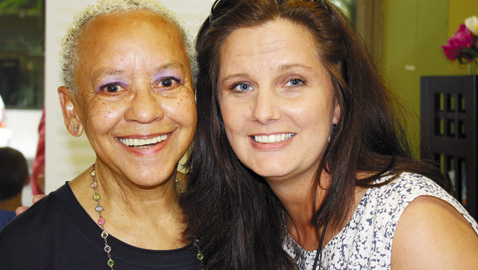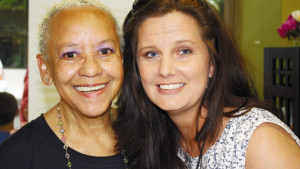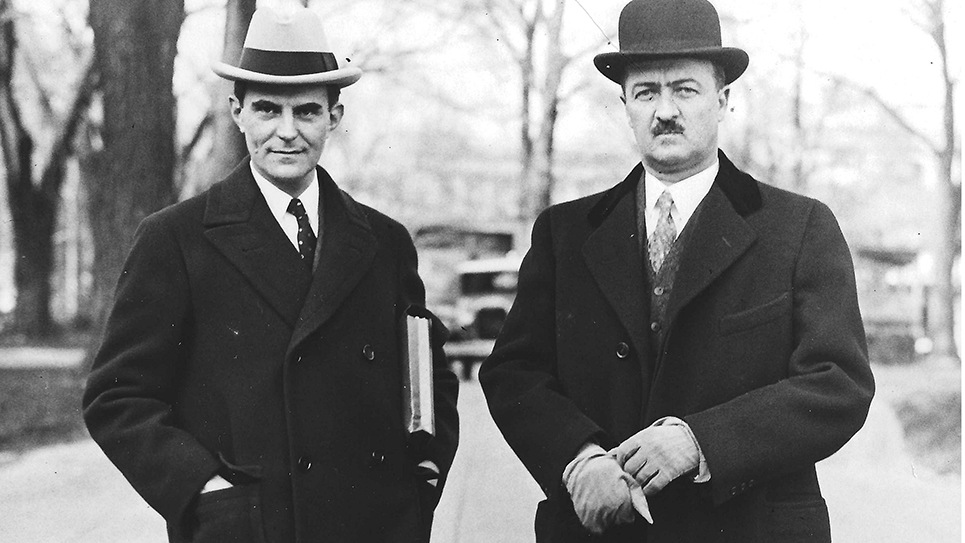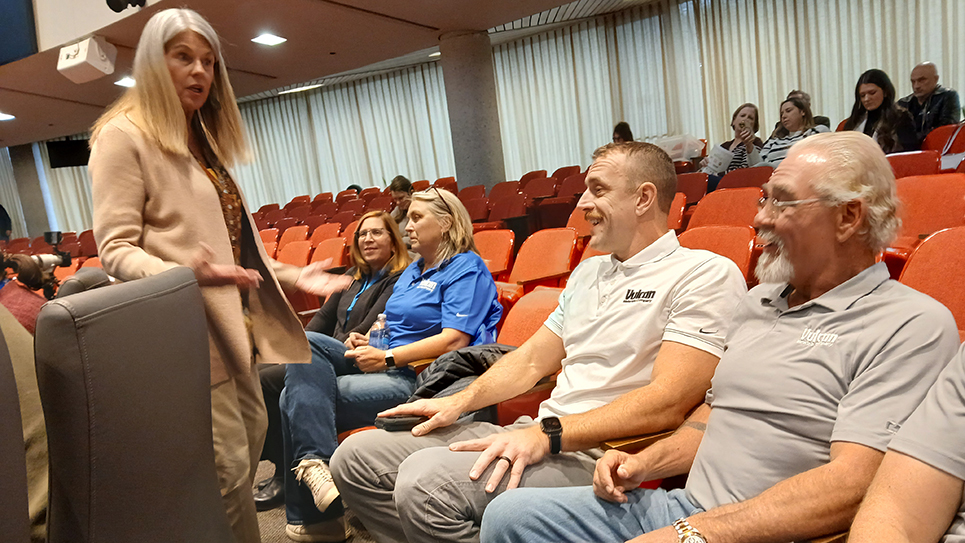As a literature teacher, there is no bigger thrill than meeting an author whose work you have taught. I have been teaching Nikki Giovanni’s poetry for 14 years, and I had the privilege of meeting her last weekend at Union Avenue Books. Giovanni gave two readings at the cozy bookstore on Saturday and I attended the first. She was gracious, hilarious, sassy, and just plain honest. It was wonderful.
In my class, I teach Giovanni’s poems “Knoxville, Tennessee” and “Choices.” Students enjoy the fact that there is a poem in our textbook about their hometown and I often have them create their own version of it. “Choices” is about trying to be content with what we have, which I believe is a very valuable lesson indeed. I remember when I taught at Vine Middle School learning that Giovanni had attended Austin High (now Austin East). There is a story in our textbook which alludes to Giovanni’s grandmother giving what for to Cas Walker. How cool is that?
As a teacher, I am also a lifelong learner. Because I am constantly pouring out to students, I crave the company of people that I can learn from. The most profound thing I took away from Giovanni was her respect for everyone’s struggle. She explained her belief that the struggle of the African-American woman is well documented, expressed in poetry, fiction, and visual art. She sympathizes, however, with the toil of the white pioneer women who settled Appalachia and feels that their journeys of hardship and loss have not been honored enough. I’d swear she looked right at me.
On the way home I thought about her words. I remembered when I was just a teenager and I baby sat for a history professor named Dan Mahan. I dove into a copy of “Sula” by Toni Morrison he had lying around. Then I read everything by Morrison I could get my hands on. Then I discovered Zora Neale Hurston and Gwendolyn Brooks. There is honesty, a pride in owning up to reality, in literature by African-American women that I have not found anywhere else. It nourishes me. It sets me free.
In my experience, southern white women have a tendency to sweep things under the rug and decorate them. We are taught to pretend that ugly things aren’t there at all. If we are ever going to honor the struggles of our ancestors and the struggles of each other, we have to own up to our own struggles first. We can’t live in a bubble. It has been black women, in literature and in real life, who have taught me to be proud of my struggles and the strength they have built inside me. Southern white ladies have strength, but I think sometimes we feel like we’re supposed to hide it. This is especially true if showing it might not be considered “sweet.” My friend from New Hampshire says it’s not a southern white lady thing, that it’s a southern thing in general. He figures it probably comes from days of southern aristocracy and gentility. My friend Margaret Butt, a self-professed southern white lady, says she thinks “we’ve come a long way since the days of the Southern belle, we do struggle with being nice at all costs.”
My black female friends have been very sweet to me, but they have also shown me that it is okay not to be sweet all the time. When I was letting a personal problem interfere with my professionalism, it was a professional black woman who called me out on it. She kept it real with me without a spoonful of sugar, and it made me a better professional. I have seen what comes from a life of trying to be sweet all the time, of sweeping things under the rug, and of decorating over the unpleasant truths. I’m not going to live that way ever again, and I’d like to take this opportunity to thank the black women who helped me realize I don’t have to.








